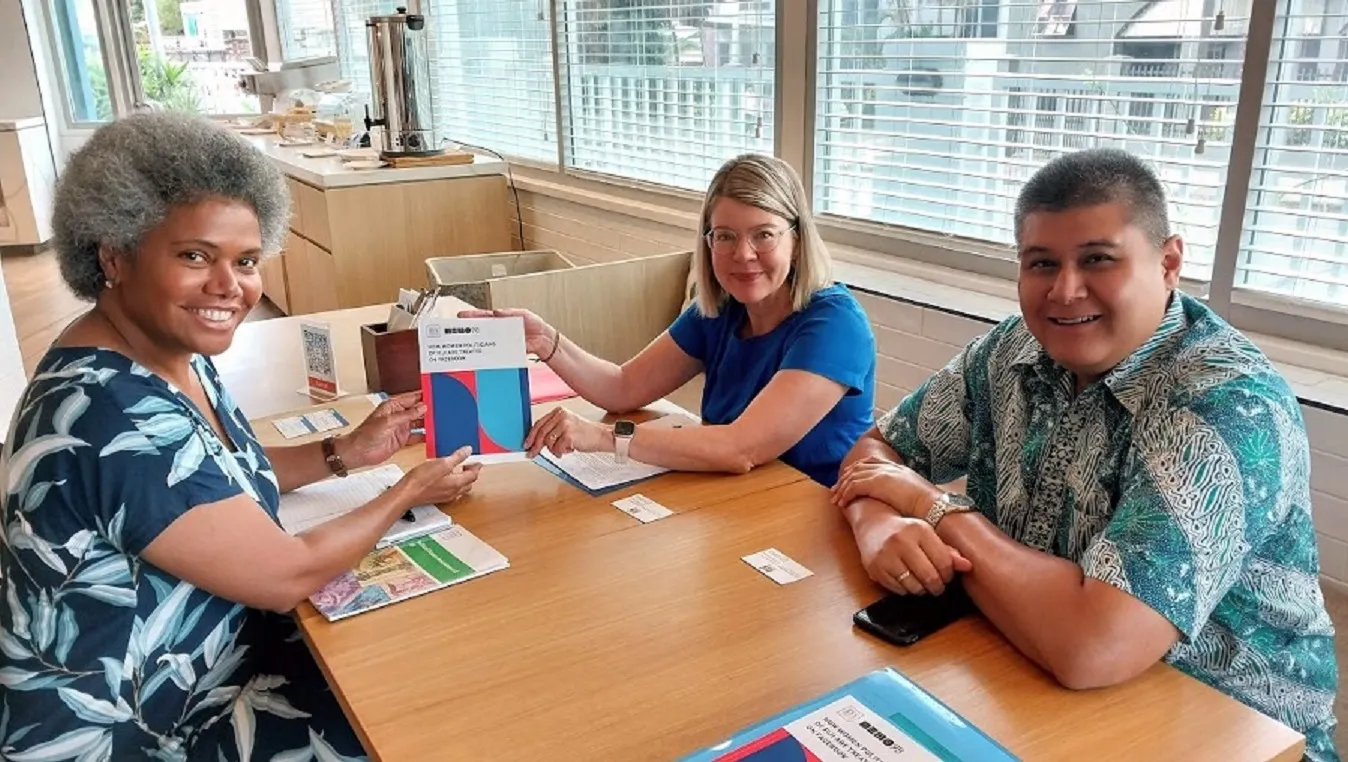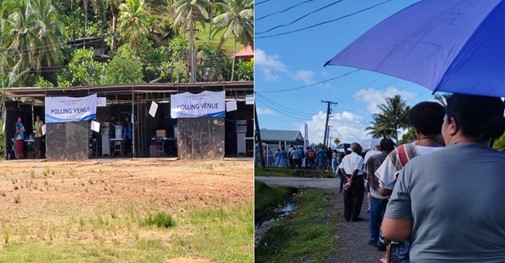Social media discourse a barrier to women candidates in Fiji?

Fiji has concluded the 2023 elections and the results are in. Although the Melanesian country has achieved the change in power that many had hoped for, the picture is less rosy for women’s representation in parliament. Could the offensive treatment women politicians received on social media be to blame?
The Fijian Elections Office approved 343 candidates from 9 registered political parties and 2 independent candidates for the 2022 General Elections. Of the total, 56 women ran for the elections, the same number as in the 2018 elections, although as percentage the rate has dropped to 16.3 per cent of the total number of candidates compared to 24.0 per cent in 2018 elections. This decline in the percentage was attributed to the fact that 55 seats were up for grabs compared to 51 seats in 2018. Since the number of seats increased, the number of candidates per party had increased to 55.
Data source 2. https://www.pacwip.org/country-profiles/fiji/
Data source 3. https://bit.ly/3UDXNKH
In the 2014 and 2018 elections, the percentage of women contesting the elections were 17.7 per cent and 24.0 per cent respectively. Eight women were elected to the parliament after the election in 2014 and a record ten women were elected to parliament in the 2018 election. The 2022 elections, which were the third election under new electoral system, had the lowest percentage (16.3 per cent) of women contesting the election compared to 2014 and 2018. The result of the 2022 elections saw only six women elected to parliament which is the lowest number so far under the new electoral system. There has been extensive work done to advance women’s leadership skills for several years in a bid to improve women’s representation in parliament by various stakeholders such as civil society organizations, development partners and political parties in Fiji.

International IDEA held the Women in Politics forums throughout 2022 and worked on highlighting the online bullying that women MPs and candidates face on social media through our report: “How Women Politicians of Fiji are Treated on Facebook". The report found that while male candidates were the target of negative political messaging, women candidates received a disproportionate number of messages and posts that were sexist and abusive in nature.
Additionally, female candidates reported the negative messaging caused them to reconsider standing for election out of concern for their family’s reputation.
Is Temporary Special Measure (TSM) the answer?
The failure to make major progress in improving women’s representation in the Fijian National Parliament over the years has reignited calls for the introduction of some form of temporary special measure (TSM). In the Melanesian region, Fiji still has the highest percentage of women in parliament but is nowhere near achieving the Sustainable Development Goal 5’s Target 5.5 which is “Ensure women’s full and effective participation and equal opportunities for leadership at all levels of decision-making in political, economic and public life”. Melanesia is one of the lowest performing regions when it comes to women’s representation in national parliaments. In an attempt to remedy the low proportion of women, Samoa and New Caledonia have already embraced TSM while in Papua New Guinea the topic has been discussed since 2009.
According to the SDG Indicator Dashboard, the global proportion of seats held by women in the world’s national parliaments is 25.6 per cent—despite efforts in Fiji to improve women's representation, this Melanesian nation trails the world at only 10.9 per cent.
Fiji, which comprises only one nationwide constituency, uses an Open List Proportional Representation (OLPR) system. According to Alan Wall, Senior Global Election Expert, “It may be harder under OLPR to increase the representation of disadvantaged groups such as women and minorities through mechanisms such as representation quotas,” but added that is not impossible, pointing to Kosovo, where representative quotas do operate in an OLPR system.
Towards Equal Treatment on Social Media
International IDEA’s report on the experience of women politicians reveals the gendered, ill treatment some prominent women candidates in Fiji endure in political life. The Deputy Speaker of the National Parliament, the Hon. Lenora Qereqeretabua was elected despite this hardship, but noted the importance of encouraging other women to stand for election. The report also notes that male politicians were more likely to engage in negative online conduct than their female counterparts.
Social media platforms should pay attention to this inequality closely. Women can leverage new forms of media to promote and increase women’s political participation, however stakeholders should also work to sensitise male social media users to avoid harmful and even abusive behaviours. The goal should be the use of social media as a neutral political arena where all genders can interact respectfully, safely, and for the greater good of their communities.
With the change in government in Fiji, it is an opportune time to lobby for TSM given that the new coalition government is considering wider reforms to electoral laws. Likewise, work on promoting online safety is much needed, giving the government an opportunity to lead the way. A holistic approach will be needed in this effort which should include political parties, civil society organizations, social media platforms and the general public. If Fiji is successful, it can set a standard for Melanesian and Pacific nationsto follow.




